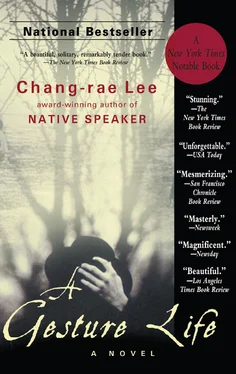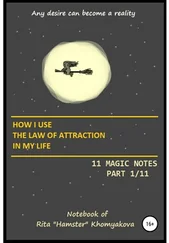I nodded, for what she was saying seemed reasonable enough. I could understand the potential awkwardness of having the two of us present. Mary Burns and I went out together in public quite regularly, but rarely was it the three of us, the “whole family,” as Sunny had put it, a phrase which stuck out, unfortunately, because it seemed amazing that she should say such a thing. Certainly, I wanted us to be as much of a unit as any, a “whole family” in whatever sense was possible. But I knew Sunny had no feelings of the kind. I had done as Mary Burns had requested, never bringing up to Sunny her ill use and her selfishness and her cold spirit; and my silence, I will say now, was hurtful to me, for I did have a genuine feeling for Mary Burns, as genuine a feeling as I’d had for a long time, and to stand by and witness their relations caused me severe distress. I was simply angry at Sunny, and so, finally, I think, was Mary Burns, deeply angry and hurt, and though she never said a word to the girl, it seemed to happen that she was addressing me at the end, looking to me for the reasons why my daughter, after nearly four years, could still be so profoundly unmoved.
That night of the dance, Mary Burns quietly watched me swim. She waited to speak until I was done and had pulled on my robe. I sat down with her at the outdoor table. The automatic lights on the stone paths had gone on, and there was a coppery glow rising against the early evening sky.
“I wish we could have talked before you decided on your own not to come tonight.”
“I called this afternoon,” I said to her. “But you were out.”
“You know I was at the club, helping with the decorations.” She looked upset, though her voice was steady and low. “Though I suppose it wouldn’t have mattered, whether we talked or not.”
“Sunny isn’t feeling so comfortable at the moment. You must understand that I wish to support her.”
“Of course you do,” she said, exasperated. She brushed her hair with her hand. She had recently changed the color, from its silvery tones to a very pale golden color, and though it was handsome, I wasn’t certain it best suited her. She appeared much younger, and then not, and sometimes I was unsure how to think of her. “Listen to me, Franklin. She’s your daughter, and so you ought to do everything you can for her. If you have eyes, you’ve seen that I’ve tried to do my part.”
“I know you have, and I thank you.”
“That’s not why I bring it up,” she said sharply. She paused and took a breath. “I didn’t spend time with Sunny so you’d be grateful to me. I didn’t do it because of you, or even so much to help you. She seemed to need guidance, the kind of company a mother or aunt or grandmother can give, and I wanted to try to offer that. I guess I was terribly wrong. I was naive. But I’m also not sorry. I would do it again, without hesitation.
“The reason I’m angry tonight is that I think you treat her wrongly. Perhaps you don’t know it, but you do. I’ve thought it from time to time, and I’m sorry I’m such a coward that I can only say this to you now.”
I cleared my throat and said, surprising myself, “I understand that I’ve not dealt with Sunny’s jealousy of you very effectively.”
This seemed to irritate her. “That’s not what I’m talking about. That’s not it at all.”
“I try my best to treat her with respect,” I said.
“Yes,” Mary Burns answered earnestly. “Yes, you do. You treat her like a grown woman, which I guess is understandable because she’s very mature for her age.”
“You know how much I want her to be independent.”
“Yes, she is,” she replied. “But it’s as if she’s a woman to whom you’re beholden, which I can’t understand. I don’t see the reason. You’re the one who wanted her. You adopted her. But you act almost guilty, as if she’s someone you hurt once, or betrayed, and now you’re obliged to do whatever she wishes, which is never good for anyone, much less a child.”
“This is quite unusual, Mary, to hear, but I’ll think about what you say.”
“For goodness sake, Franklin, you don’t always have to assent!” she said, her voice suddenly rising. I thought she would speak most sharply to me then. But she seemed to hear herself, and I could see the control she was exercising over her face. She took a sip of her iced tea. “I might be completely wrong, Franklin. I hope I am.”
“I have always trusted your judgment, Mary.”
“Yes. I know you have.”
We sat in silence after that, the night fast approaching, the crickets just beginning to arise in song. Mary Burns glanced at the house, to Sunny’s bedroom window, which was still lighted. Shadows moved along a wall. They were already late for the dance, but it didn’t seem to matter. It was one of those moments that appear to take forever, though somehow everything was the better for it. I didn’t wish to go further in the conversation, nor did she, and if there was one true thing that we shared during our relations, it was that neither of us, for better or worse, had much stomach for these engagements, for taking certain issues to the necessary lengths. We rather floated the deep waters, just barely treading, although now I see how my friend Mary Burns held onto things more gravely than I, certain notions staying with her longer, more tightly clasped, so that in the end we were much farther apart in our feelings than I had ever imagined.
Sunny finally came out the patio doors, dressed in a resplendent swath of white. She and Mary Burns had decided on the outfit together the weekend before, on a shopping junket down to the city. It was a very handsome choice. The dress came just up to her darkly suntanned shoulders, the delicate material clinging to her torso but not so tightly as to be indecent, the handsome drape conveying only the suggestion of the young woman beneath. But the young woman was certainly there, too, the near adultness of her, and the sight of that shape made me realize why she had asked me to remain at home. It wasn’t at all what Sunny had said in the store, about people liking me too much, or (as I had imagined it) her jealousy of Mary Burns, or even what was ventured of how I treated her, which was probably true enough. It was her bodily presence, the sheer, becoming whiteness of her limbs and skin and face and eyes. She was beautiful, yes. Exceptionally so. But it was also the other character of her beauty, its dark and willful visage, and with it, the growing measure of independence she would exercise over her world and over me, that she had hoped to keep hidden a little longer.
THE CANDY STRIPER, Veronica, finds me unusually good-natured. Almost everything I say makes her grin, and her full, ruddy face beams and blushes whenever she comes into my room with her cart. Most of the candy stripe girls are outgoing and talkative and even a little waywardly brash, which is naturally why they do the work. But Veronica, shyish and sweet, healthfully ample, with a shockingly full head of tight chestnut-brown curls, is the sort of girl you would wish upon all good people who have mourned the demise of that cardinal generosity of youth.
Veronica, of course, has little care for such things. She is unfretting, unsevere. She understands how to hearten a patient with a wide smile. And now, after two days and nights, she finds me familiar and trustworthy, enough so not to bother to knock on the always open door. She wheels her cart inside the room and then up beside the bed railing, and greets me with cheer.
“Were you able to sleep at all last night, Franklin?” she says, automatically fanning out the selection of magazines and books atop the cart. We are clearly on a first-name basis. She carries the usual periodicals, creased magazines of home and health and lifestyle, but the books are mostly crime novels and stories of the strange and the occult, all of which soft-spoken Veronica, it seems, has chosen for her selections. “The nurse said you were out of bed a lot, walking the halls.”
Читать дальше











![William Frith - John Leech, His Life and Work. Vol. 1 [of 2]](/books/747171/william-frith-john-leech-his-life-and-work-vol-thumb.webp)
![William Frith - John Leech, His Life and Work, Vol. 2 [of 2]](/books/748201/william-frith-john-leech-his-life-and-work-vol-thumb.webp)